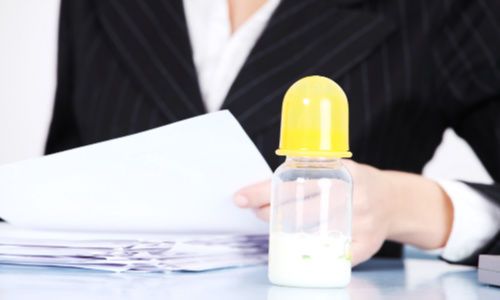But the problem arose when banks including UBS, Credit Suisse, and Julius Baer frequently used the lower, maternity leave-year bonus as the new baseline. «That’s relatively normal based on my experience», a former senior UBS banker said. «It’s sold as a 20 percent rise on the year, when in fact you had been cut by half the year before because of your maternity leave», another said.
Another former senior UBS banker said resistance against not «prorating» new mothers lower was so strong that once she moved into a management position, she learned to begin lobbying internally for her female bankers’ bonuses as early as mid-summer – literally eight months before bonus season.
Making Good Later
Some of the women finews.com spoke to about the difficulty of getting back to previous bonus level said bosses and mentors would often promise to make good the following year – in fact, this sometimes happened.
UBS denied that it treats employees returning from maternity leave differently, and that it consults externally to look for discrepancies into how men and women are paid.
A spokesman for the bank said employees who think they have been treated unfairly should come forward, but that only a small number had thus far done so. «Along with our regular external and internal reviews, this gives us confidence that we are acting correctly.»
Bonuses Loom Large
But in contrast to other industry like pharmaceuticals or medtech, where bonuses are the smaller part of overall compensation, variable compensation figures big in banking as a portion of overall pay. And finance still has relatively arbitrary rules about how those bonuses, provided the overall pool remains the same or rises, are doled out.
UBS current women woes stand in stark contrast to its efforts at getting mothers back to work via its «career comeback» program, and to keeping them in the workforce. The brouhaha has hit UBS where it hurts – and the bank marshalled diversity head Carolanne Minashi to give a television interview to «Bloomberg» the day the bonus story surfaced.
It is unclear how effective changes Minashi helped usher in following the 2018 petition were. The program’s relatively modest numbers – 104 since 2016 – cast doubt on UBS’ effectiveness at replacing senior women who are heading for the exits.
UBS said it has a retention rate of over 90 percent in the comeback program, largely at director level, since its inception three years ago. A three-person team within wealth management which had taken on a handful of diversity initiatives such as one to get more women into roles overseeing profit-and-loss accounts was disbanded after unit head Juerg Zeltner left last year.
- << Back
- Page 2 of 2

































